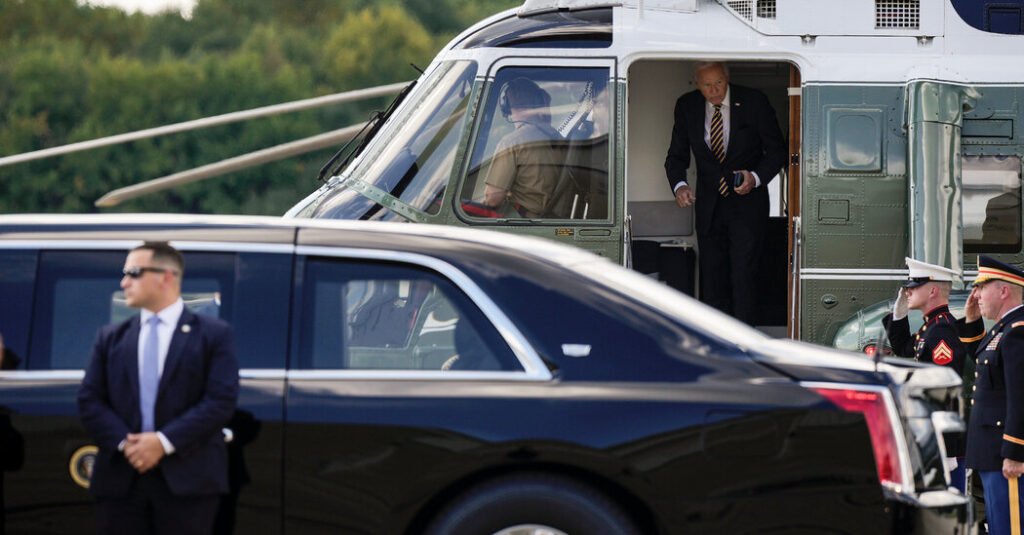President Biden hosted the leaders of Australia, India and Japan at his home in Wilmington, Delaware this weekend for the fourth and final “Quad” summit, seeking to bolster U.S. alliances with Indo-Pacific nations and counter rising Chinese influence in the region.
Biden used the summit to expand both his “cancer moonshot” initiative and the Quad Fellowship, a scholarship program designed to connect the next generation of scientists and engineers. The four leaders also signed a maritime agreement and announced joint Coast Guard missions.
The Quad alliance has been around for more than a decade, but Biden is the first president to convene a meeting of the four leaders as a group. As the group posed for a photo on Saturday, Biden was asked if the alliance would continue beyond November, to which he replied, “well beyond November.”
“Our countries are more strategically aligned than ever before,” Biden said later, adding, “Challenges will come, but the world will change, because the Quad will stand.” Indian Prime Minister Narendra Modi echoed the president’s remarks, saying, “The Quad will stand.”
Biden has often said “all politics is personal,” and his decision to open his Wilmington home — his first time hosting a foreign leader there — reflected his belief that deep relationships are the best way to build constructive alliances. This year’s summit, with just a few months left in the president’s term, took on a deeply personal tone.
During a one-on-one meeting with Australian Prime Minister Anthony Albanese on Friday night, the president gave Albanese a tour of his home and told attendees to relax and take off their jackets. First lady Jill Biden was not in attendance; she remained in Washington to host the White House’s first Back to School Night on Saturday.
“The atmosphere was like two guys in one guy’s house, talking broadly about the current state of the world, swapping their political careers,” Sullivan told reporters on Saturday. “It felt like someone was coming over to your house for coffee,” he said.
Biden held one-on-one meetings with Modi and Japanese Prime Minister Fumio Kishida at his home on Saturday. After his meeting with Modi, the United States and India also announced a new Joint Clean Energy Initiative, focusing on partnerships in Africa, where China is making major investments in clean energy.
A White House spokesman said the four leaders would hold a more formal meeting in the afternoon at Archmere Academy, where the president attended high school, before hosting an “intimate” dinner there in the evening.
The first trilateral summit between the three countries was held virtually amid the COVID-19 pandemic in March 2021. During the meeting, Biden announced a partnership with Japan, India and Australia to fund a major expansion of vaccine manufacturing capacity in India, which would help alleviate the severe COVID-19 vaccine shortage in Southeast Asia.
The Quad alliance reflects Biden’s belief in the value of what Sullivan called a “lattice-like approach with multiple institutions, overlapping partnerships and different configurations” in addition to bilateral talks and large gatherings like the G20.
Health was also a focus at this year’s summit: Late Saturday, the president announced the Quad Cancer Moonshot Initiative, a new collaboration aimed at reducing cervical cancer in the Indo-Pacific, where some countries, particularly poor and remote island nations, have particularly high rates of the disease.
Biden is deeply committed to an ambitious plan aimed at “eliminating cancer as we know it,” which he launched as vice president in 2016 at the urging of President Barack Obama after his son Beau died of glioblastoma, a type of aggressive brain cancer.
“Indeed, the Quad Cancer Moonshot means greater collaboration between our hospitals, research centers and cancer foundations; greater investment in testing, treatment and research; and stronger exchanges between our two countries,” Biden said.
The effort is being spearheaded by Caroline Kennedy, the U.S. ambassador to Australia, who has already made great strides in reducing cervical cancer incidence. The expanded Moon Shots plan will focus on expanding cervical cancer screening, increasing vaccination against the human papillomavirus (HPV), a common sexually transmitted disease that is the leading cause of cervical cancer, and treating patients.
It will be backed by Gavi, an international organization working to expand access to vaccines. In June, First Lady Jill Biden announced a five-year commitment of $1.58 billion to Gavi.
Modi said India, a major vaccine manufacturer, would donate vaccines. Japan would provide expertise. Australia, which will be the first in the world to eradicate cervical cancer, would expand existing efforts in the region.
“A quarter of the world’s cervical cancer cases occur in the Indo-Pacific region and sadly, Pacific women are 13 times more likely to die from cervical cancer than Australian women,” Ms Albanese said. “These people are more than just numbers – they are our neighbours and part of the Pacific family and we are stepping up to help.”

